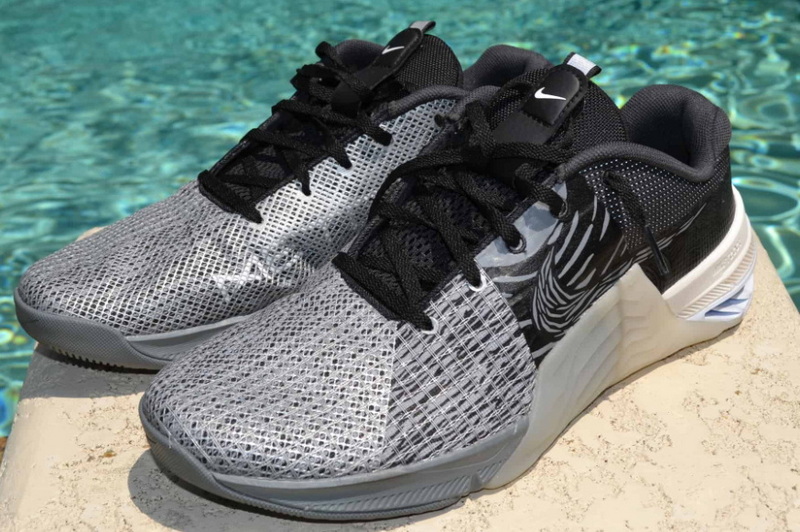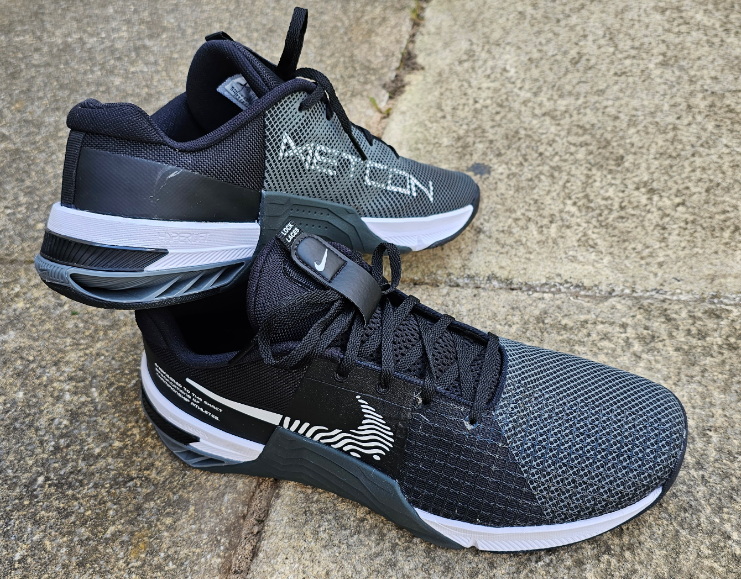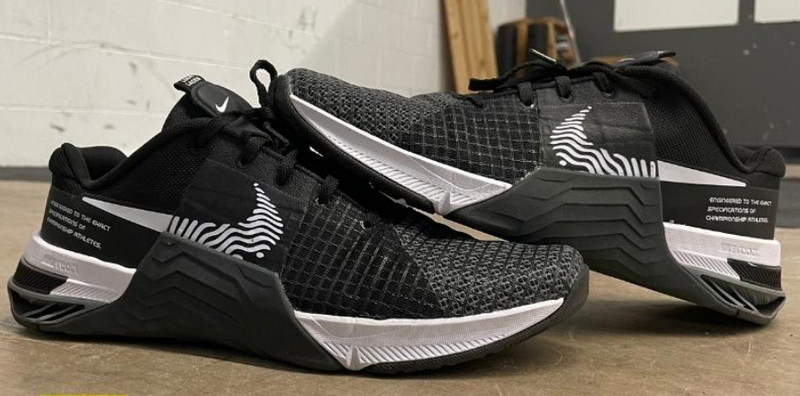Content Menu
● Introduction to CrossFit Shoes
>> Key Features of CrossFit Shoes
● Differences Between Men's and Women's Shoes
>> Foot Shape and Size
>> Gender-Specific Design
● Can Women Use Men's Crossfit Shoes?
>> Pros of Using Men's Shoes
>> Cons of Using Men's Shoes
● Choosing the Right CrossFit Shoes
>> Popular CrossFit Shoes for Women
>>> 1. Nike Metcon 8: Known for stability and versatility, ideal for both lifting and cardio.
>>> 2. Reebok Nano X3: Offers comfort and support with a wide toe box for natural toe splay.
>>> 3. Under Armour HOVR Sonic 6: Delivers superior energy return and comfort, ideal for high-impact workouts.
>>> 4. NOBULL Impact: Offers durability and a minimalist design, perfect for rope climbs and sled pushes.
>>> 5. Adidas Adipower Weightlifting 3: Designed specifically for weightlifting, providing superior stability.
>>> 6. Inov-8 F-Lite G 300: Ideal for women who need a balance of flexibility and grip.
>>> 7. Merrell Trail Glove 7: Offers a barefoot feel with excellent grip and protection for outdoor training.
>>> 8. ASICS Gel-Quantum 180: Prioritizes cushioning and comfort for high-impact workouts.
>> Activity-Specific Features
>> Durability and Maintenance
>> Style and Personal Preference
● Conclusion
● FAQs
>> 1. What are the main differences between men's and women's CrossFit shoes?
>> 2. Can women wear men's CrossFit shoes if they have wider feet?
>> 3. How do I choose the right CrossFit shoes for my needs?
>> 4. Are women's CrossFit shoes more expensive than men's?
>> 5. Can I use CrossFit shoes for running?
● Citations:
CrossFit is a dynamic and versatile fitness program that combines strength training, gymnastics, and cardio exercises. Choosing the right footwear is crucial for performance and safety in CrossFit. While women's CrossFit shoes are designed to meet specific needs, some women might consider using men's shoes due to availability, style, or personal preference. This article explores whether women can use men's CrossFit shoes, discussing the differences between men's and women's shoes, benefits, and potential drawbacks.

Introduction to CrossFit Shoes
CrossFit shoes are designed to handle a wide range of activities, from weightlifting to running. They typically feature a solid sole for stability during lifts and enough flexibility for running and agility drills. Popular models include the Nike Metcon, Reebok Nano, and NOBULL Trainer.
Key Features of CrossFit Shoes
- Stability: A solid, flat sole is essential for weightlifting.
- Flexibility: Enough flexibility to support running and agility movements.
- Cushioning: Adequate cushioning for comfort during high-impact activities.
- Breathability: Mesh uppers for ventilation to keep feet cool and dry.
Differences Between Men's and Women's Shoes
Men's and women's shoes differ primarily in width and shape. Men's shoes are generally wider, with a "D" width, while women's shoes have a "B" width. Additionally, women's shoes often have narrower heels and wider forefoot areas to accommodate the typical female foot shape.
Foot Shape and Size
Women's feet are not simply smaller versions of men's feet. They have distinct anatomical differences that affect shoe design. Women typically have narrower heels and wider forefoot areas, which influences the overall shape of the shoe.
Gender-Specific Design
- Width: Men's shoes are wider, which can be beneficial for women with wider feet but may feel too roomy for those with narrower feet.
- Heel and Forefoot: Women's shoes are designed to accommodate narrower heels and wider forefoot areas.
- Cushioning: Women's shoes often have less midsole foam due to generally lower body mass.
Can Women Use Men's Crossfit Shoes?
Yes, women can use men's CrossFit shoes, but it depends on personal preference and foot shape. If a woman has wider feet or prefers the style and availability of men's shoes, they might be a good option. However, women's shoes are designed to provide better support and fit for the typical female foot.
Pros of Using Men's Shoes
- Style and Availability: Men's shoes may offer more color options or styles that appeal to some women.
- Wider Width: Beneficial for women with wider feet who find women's shoes too narrow.
- Price: Sometimes men's shoes are cheaper or more readily available.
Cons of Using Men's Shoes
- Fit: Men's shoes can feel too roomy or less supportive around the heel and forefoot.
- Performance: Women's shoes are designed to optimize performance for female anatomy, potentially leading to better stability and comfort during workouts.

Choosing the Right CrossFit Shoes
When selecting CrossFit shoes, consider the following factors:
- Activity Type: Ensure the shoe supports your primary activities, whether lifting, running, or agility drills.
- Fit: Try on shoes to ensure a snug, supportive fit.
- Comfort: Choose shoes with adequate cushioning and breathability.
Popular CrossFit Shoes for Women
1. Nike Metcon 8: Known for stability and versatility, ideal for both lifting and cardio.
- Stable, flat heel for optimal power transfer.
- Breathable mesh upper with durable overlays.
- Flexible forefoot for agility.
- Removable Hyperlift insert for adjustable heel height.
Example: Imagine tackling a CrossFit workout that combines deadlifts and high-intensity interval training. With the Nike Metcon 8, you benefit from its stable heel during heavy lifts and its flexible forefoot for quick, responsive movements during sprints.
2. Reebok Nano X3: Offers comfort and support with a wide toe box for natural toe splay.
- Flexweave knit upper for breathability and support.
- EVA foam midsole for responsive cushioning.
- Wide toe box for natural toe splay.
- Durable rubber outsole for traction.
Example: During a CrossFit session featuring box jumps and kettlebell swings, the Reebok Nano X3's supportive upper and cushioning provide comfort and stability. The wide toe box helps you maintain balance and power through dynamic movements.
3. Under Armour HOVR Sonic 6: Delivers superior energy return and comfort, ideal for high-impact workouts.
- UA HOVR technology for exceptional energy return and cushion.
- Compression mesh Energy Web for added support and structure.
- External heel counter for enhanced stability.
- Breathable upper for optimal ventilation.
Example: During a CrossFit WOD that includes intense running intervals and plyometric exercises, the HOVR Sonic 6's advanced cushioning and responsive design help absorb impact and reduce fatigue, allowing you to maintain high performance and comfort throughout your workout.
4. NOBULL Impact: Offers durability and a minimalist design, perfect for rope climbs and sled pushes.
- SuperFabric upper for exceptional durability.
- Carbon rubber outsole and sidewall guards and toe bumper for protection.
- Anatomical midsole for cushioning.
- Wider toe-box for easier footing.
Example: In a CrossFit class that includes rope climbs and sled pushes, the NOBULL Impact durable upper and protective guards ensure your feet are well-protected, while its flexible design allows for natural movement.
5. Adidas Adipower Weightlifting 3: Designed specifically for weightlifting, providing superior stability.
- Leather upper for durability and support.
- TPU midsole for stability.
- Raised heel for optimal lifting posture.
- Adjustable straps for a secure fit.
Example: During a CrossFit session that emphasizes Olympic lifts like snatches, the Adipower Weightlifting 3's elevated heel and stable midsole provide the support needed to execute lifts with precision and safety.
6. Inov-8 F-Lite G 300: Ideal for women who need a balance of flexibility and grip.
- GripMaster outsole for traction on varied surfaces.
- Meta-Flex technology for flexibility.
- PowerFlow midsole for cushioning and energy return.
Example: During a CrossFit workout that includes both cardio intervals and strength training, the Inov-8 F-Lite G 300 provides the grip and adaptability needed for dynamic movements.
7. Merrell Trail Glove 7: Offers a barefoot feel with excellent grip and protection for outdoor training.
- Vibram TC5+ outsole for durability and traction.
- Minimalist design for a natural foot movement.
- Hyperlock TPU film heel counter for secure fit.
- Breathable mesh upper.
Example: When performing CrossFit workouts that involve trail running and outdoor obstacle courses, the Trail Glove 7 provides the grip and protection needed for challenging environments while maintaining a natural feel.
8. ASICS Gel-Quantum 180: Prioritizes cushioning and comfort for high-impact workouts.
- Rearfoot and forefoot GEL technology for cushioning.
- Trusstic System technology for stability.
- Ortholite X-40 sockliner for moisture management.
- Durable rubber outsole.
Example: During a high-intensity CrossFit WOD involving running and plyometric exercises, the Gel-Quantum 180's advanced cushioning system absorbs impact and reduces stress on your feet, helping you stay comfortable and focused throughout the session.
Activity-Specific Features
- Weightlifting: Look for shoes with a stable, flat sole and a raised heel to support lifting posture.
- Running and Cardio: Ensure the shoe has enough cushioning and flexibility for high-impact activities.
- Agility Drills: Opt for shoes with a grippy outsole and flexible forefoot for quick movements.
Durability and Maintenance
CrossFit shoes are subjected to a variety of stresses, from rope climbs to heavy lifts. Choose shoes with durable materials and maintain them regularly to extend their lifespan.
Style and Personal Preference
While functionality is key, style and personal preference can also play a role in choosing CrossFit shoes. Many brands offer a range of colors and designs to suit individual tastes.
Conclusion
While women can use men's CrossFit shoes, it's essential to consider the differences in design and fit. Women's shoes are tailored to provide optimal support and comfort for female anatomy. However, if style, availability, or personal preference lead you to men's shoes, ensure they fit well and meet your performance needs.

FAQs
1. What are the main differences between men's and women's CrossFit shoes?
Men's shoes are generally wider and have a different shape to accommodate the male foot, while women's shoes are designed for narrower heels and wider forefoot areas.
2. Can women wear men's CrossFit shoes if they have wider feet?
Yes, women with wider feet might find men's shoes more comfortable due to the wider width, but ensure they provide adequate support and stability.
3. How do I choose the right CrossFit shoes for my needs?
Consider your primary activities, ensure a snug fit, and choose shoes with adequate cushioning and breathability.
4. Are women's CrossFit shoes more expensive than men's?
Sometimes, but it depends on the brand and model. Women's shoes may offer additional features tailored to female anatomy.
5. Can I use CrossFit shoes for running?
While CrossFit shoes can handle short runs, they are not ideal for long-distance running due to less cushioning compared to dedicated running shoes.
Citations:
[1] https://www.blenderbottle.com/blogs/crossfit/top-10-best-crossfit-shoes-for-women
[2] https://marathonhandbook.com/difference-between-mens-and-womens-shoes/
[3] https://runrepeat.com/guides/best-womens-cross-training-shoes
[4] https://runrepeat.com/guides/differences-mens-womens-running-shoes
[5] https://www.businessinsider.com/guides/health/fitness/best-cross-training-shoes-for-women
[6] https://www.verywellfit.com/best-crossfit-shoes-for-women-4157969
[7] https://gearjunkie.com/footwear/best-crossfit-shoes
[8] https://www.reddit.com/r/crossfit/comments/3qpcv8/mens_vs_womens_shoe_sizingdesignstructure/
[9] https://www.sundried.com/blogs/training/the-difference-between-crossfit-shoes-and-training-shoes
[10] https://www.womenshealthmag.com/fitness/g19966106/cross-training-sneaker-guide/
[11] https://www.outdoorgearlab.com/expert-advice/how-to-choose-womens-crossfit-shoes
[12] https://www.verywellfit.com/best-gym-shoes-for-women-4767288
[13] https://thatfitfriend.com/best-crossfit-shoes/
[14] https://runrepeat.com/guides/best-crossfit-shoes
[15] https://www.nike.com/a/difference-between-training-running-shoes
[16] https://www.tomsguide.com/best-picks/the-best-cross-training-shoes-for-gym-workouts
[17] https://www.lakhanifootwear.com/blog/major-differences-between-shoes-for-men-and-women-how-to-choose.html
[18] https://www.rundna.com.au/blog/cross-training-shoes-vs-running-shoes-what-s-the-difference
[19] https://www.reddit.com/r/crossfit/comments/1bfl0cs/womens_shoes_recs/
[20] https://www.reddit.com/r/crossfit/comments/5lbqy8/are_crossfit_shoes_good_for_both_running_and/

















